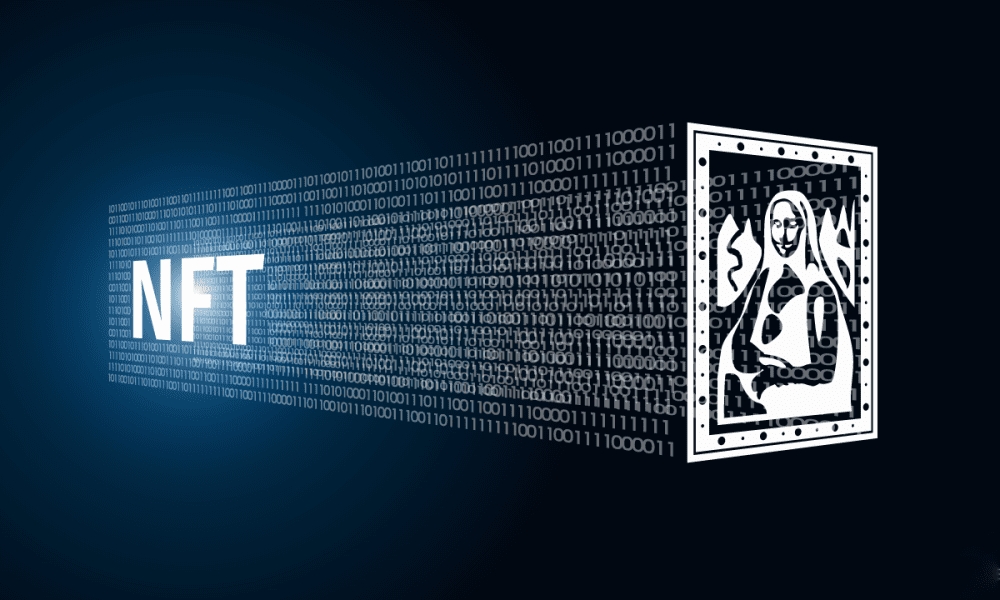Down at the very bottom of the crypto crime report the Justice Department issued last week was a request that could make it a lot harder to buy and sell NFTs.
Citing examples of criminals using the sale of the popular nonfungible tokens that hold art, video, music and collectibles to launder funds, the Justice Department asked Congress to define some of all NFTs as “value that substitutes for currency” under the Bank Secrecy Act (BSA).
Doing so, it said in “The Role of Law Enforcement in Detecting, Investigating, and Prosecuting Criminal Activity Related to Digital Assets,” would “make clear that its key [anti-money-laundering (AML) and countering the financing of terror (CFT)] provisions — including the obligations to have customer identification programs and report suspicious transactions to regulators — apply to NFT platforms, including online auction houses and digital art galleries.”
See also: DOJ Seeks to Double Jail Time for Money Transmission Crimes
The impetus, the department said, is the “explosive growth in the demand and corresponding markets for NFTs, perhaps most notably in the area of digital art.”
Substantial Risk
This “presents substantial money-laundering risks,” it said, citing a February Treasury Department study on money laundering in the broader art market.
“NFTs can be used to conduct self-laundering, a sequence in which criminals purchase an NFT with illicit funds and then resell to a purchaser who pays for it with clean funds unconnected to a prior crime,” that report noted.
It also found that in most cases, “digital assets that are unique, rather than interchangeable, and that are used in practice as collectibles rather than as payment or investment instruments … are generally not considered to be virtual assets under [international regulations].”
The “nonfungible” part of NFT means that each is unique and cannot substitute for any other, as opposed to cryptocurrencies like bitcoin which all have the same uses and value.
NFT marketplaces “may take the view that this definition [of a ‘value that substitutes for currency’] does not apply to their activities — and that they are thus not subject to the BSA’s anti money-laundering and anti-terrorism laws, the department said.
Justice is asking Congress to amend the BSA “to make clear that its key AML/CFT provisions — including the obligations to have customer identification programs and report suspicious transactions to regulators — apply to NFT platforms, including online auction houses and digital art galleries.”
Already There
Redefining NFTs as “value that substitutes for currency” would allow the Treasury Department’s Financial Crimes Enforcement Unit (FinCEN) to “potentially seek to regulate such activity under its money transmission regime,” a trio of lawyers at Skadden, Arps, Slate, Meagher & Flom wrote in an April blog post.
That, according to Jamie Boucher, Eytan Fisch and Javier Urbina, would require NFT marketplaces to register as money services businesses (MSB) with FinCEN.
Some types of NFTs — notably those used to fractionalize tangible assets like physical artworks and real estate, but also other valuable art or collectible tokens — are likely securities, the Securities and Exchange Commission (SEC) has said.
See more: How Did NFTs Become SEC’s Newest Crypto Target?
In FinCEN’s view, the trio noted, those can be repurposed to fit the definition of “value that substitutes for currency” and thus may already require MSB licenses.
For all PYMNTS crypto coverage, subscribe to the daily Crypto Newsletter.
New PYMNTS Study: How Consumers Use Digital Banks
A PYMNTS survey of 2,124 US consumers shows that while two-thirds of consumers have used FinTechs for some aspect of banking services, just 9.3% call them their primary bank.
Sign up for our daily newsletter.
You have successfully joined our subscriber list.
We’re always on the lookout for opportunities to partner with innovators and disruptors.
Learn More
Sign up for our daily newsletter.
You have successfully joined our subscriber list.
We’re always on the lookout for opportunities to partner with innovators and disruptors.
Learn More
Author
Administraroot


